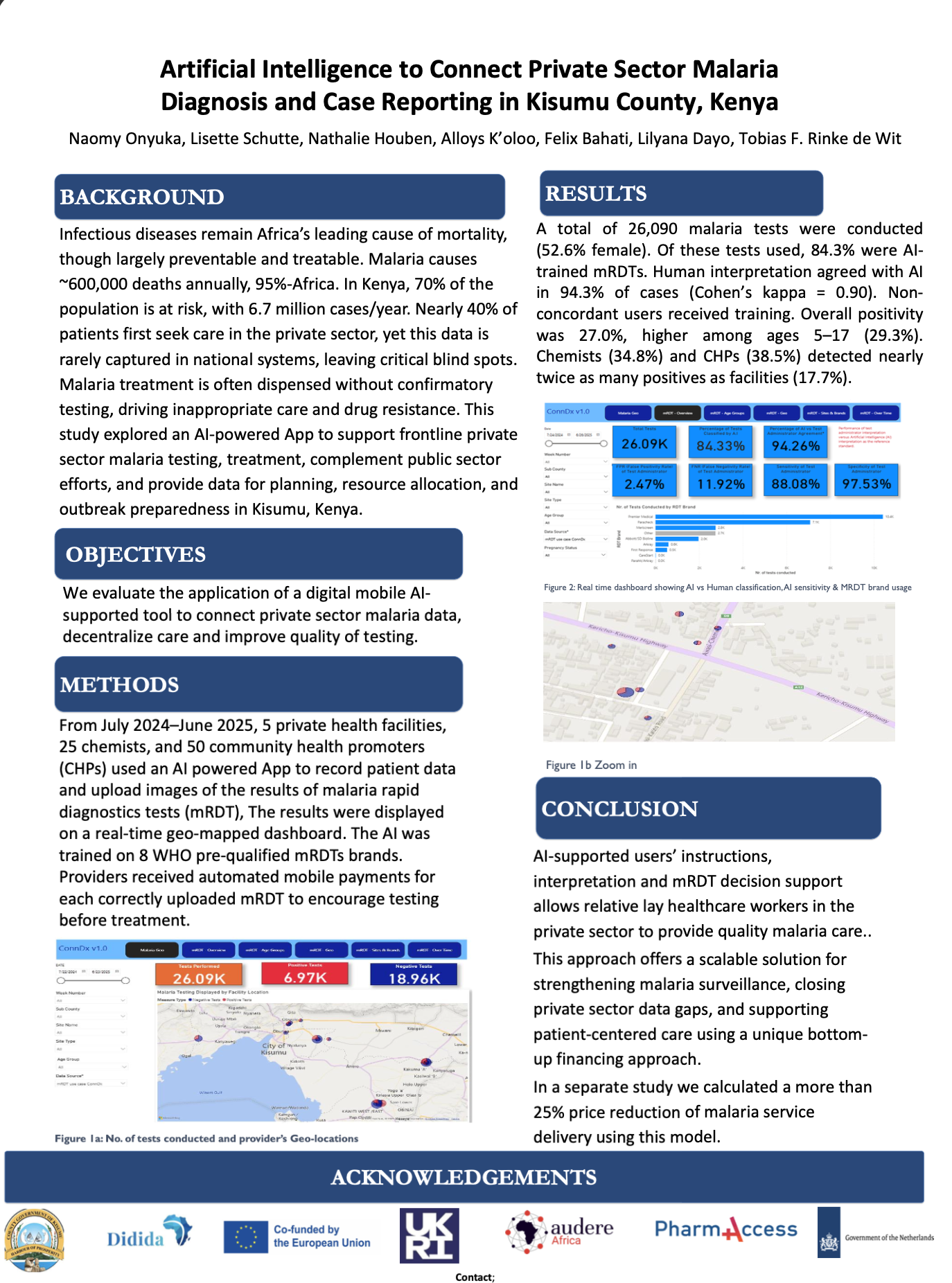Artificial Intelligence to Connect Private Sector Malaria Diagnosis and Case Reporting in Kisumu County, Kenya
Read the poster
Background
Infectious diseases remain Africa's leading cause of mortality, though largely preventable and treatable. Malaria causes ~600,000 deaths annually, 95%-Africa. In Kenya, 70% of the population is at risk, with 6.7 million cases/year. Nearly 40% of patients first seek care in the private sector, yet this data is rarely captured in national systems, leaving critical blind spots.
Malaria treatment is often dispensed without confirmatory testing, driving inappropriate care and drug resistance. This study explored an Al-powered App to support frontline private sector malaria testing, treatment, complement public sector efforts, and provide data for planning, resource allocation, and outbreak preparedness in Kisumu, Kenya.
Results
A total of 26,090 malaria tests were conducted (52.6% female). Of these tests used, 84.3% were Al-trained mRDTs. Human interpretation agreed with AI in 94.3% of cases (Cohen's kappa = 0.90). Non-concordant users received training. Overall positivity was 27.0%, higher among ages 5-17 (29.3%). Chemists (34.8%) and CHPs (38.5%) detected nearly twice as many positives as facilities (17.7%).
Conclusion
Al-supported users' instructions, interpretation and mRDT decision support allows relative lay healthcare workers in the private sector to provide quality malaria care. This approach offers a scalable solution for strengthening malaria surveillance, closing private sector data gaps, and supporting patient-centered care using a unique bottom-up financing approach. In a separate study we calculated a more than 25% price reduction of malaria service delivery using this model.
Poster presented at the AI in Health Africa Conference, Nov 5 2025

